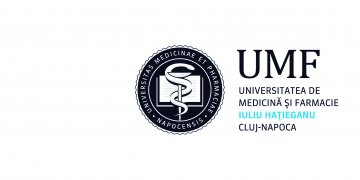Universitatea De Medicina Si Farmacie Iuliu Hatieganu Cluj-Napoca
— UMF —
“Iuliu Haţieganu” University of Medicine and Pharmacy Cluj-Napoca (UMFCN) is one of the most rapidly growing medical school in the field of research, with a long history of medical teaching (since 16th century) and with a present focused in a broad spectrum of research topics such as systems’ biology; nanomedicine; cancer, immunology and ageing; structural and functional genomics; translational research; biotechnology; molecular chemistry and pharmacy; stem cells and regenerative medicine as well as public and environmental health.
Through its mission of excellence in education and research, UMFCN promotes and supports scientific research by:
- systematic investment in research infrastructure (more than 5 mil EUR) - from modern animal facility to state of the art molecular imaging, DNA, genes and protein characterization, nano medicine and biomaterials,
- human resource development for research (since among studentship),
- administrative structures to support research management and by promoting publications and research results utilization.
All these strategic policies allowed us to become the leading medical university in Romania. UMF has been involved in the past years in numerous research and development projects, some already completed other in progress (only in 2019, 47 ongoing projects), through three main sources of financing: from the state budget - 32 national projects in value 5.210.690 euro; structural funds - 8 projects in value 11.773.526 euro; European research programs - 9 projects under Horizon 2020 Framework Programme in a total amount of 2,464,205 euro. This year our university has 71 ongoing projects in total value of 16,565,943 Euros, 14 projects under Horizon 2020 in sum of 3,239,122 Euros. Over 880 of UMF employees are involved in research activities and an efficient administrative corpus dedicated for the support of research activity and its coordination is available.
Role within ImmunoSep
UMFCN offers the lab infrastructure required for the assessment of the immune status of enrolled patients and the experience of the trained staff in monitoring and treating septic patients. University is involved in personalized immunotherapy in sepsis trial, multi-omics characterization of sepsis patients and future integration into national health systems.
Main contacts

